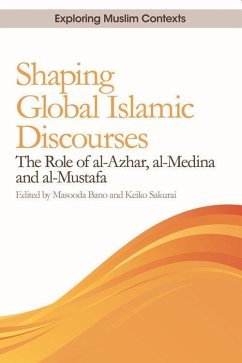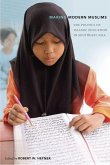'Superbly edited, this authoritative book sheds light on state-university relations, institutional strategies, student-teacher relations, and the impact of returning graduates on their home communities of three leading Islamic universities with a global footprint. Shattering the myths surrounding Islamic education today, this book is vital reading for scholars, policy makers, and a general audience.' Dale Eickelman, Dartmouth College Explores the global influence of centres of Islamic learning in Saudi Arabia, Iran and Egypt Claims abound that Saudi oil money is fuelling Salafi Islam in cultural and geographical terrains as disparate as the remote hamlets of the Swat valley in Pakistan and sprawling megacities such as Jakarta. In a similar manner, it is often regarded as a fact that Iran and the Sunni Arab states are fighting proxy wars in foreign lands. This empirically grounded study challenges the assumptions prevalent within academic as well as policy circles about the hegemonic power of such Islamic discourses and movements to penetrate all Muslim communities and societies. Through case studies of academic institutions, the volume illustrates how transmission of ideas is an extremely complex process, and shows that the outcome of such efforts depends not just on the strategies adopted by backers of those ideologies but equally on the characteristics of the receipt communities. In order to understand this complex interaction between the global and local Islam and the plurality in outcomes, the volume focuses on the workings of three universities with global outreach (al-Azhar University in Egypt, International Islamic University of Medina in Saudi Arabia, and al-Mustafa International University in Iran) whose graduating students carry the ideas acquired during their education back to their own countries, along with, in some cases, a zeal to reform their home society. Key Features - Focuses on case studies of three of the most influential international centres of Islamic learning in contemporary times - Traces how ideas are transmitted from one locale to another and how this process often influences those ideas - Takes a comparative approach with cases from North and West Africa and Southeast Asia Masooda Bano is Associate Professor at the Oxford Department of International Development, University of Oxford. Keiko Sakurai is Professor at the Faculty of International Research and Education, School of International Liberal Studies, Waseda University, Tokyo, Japan.








